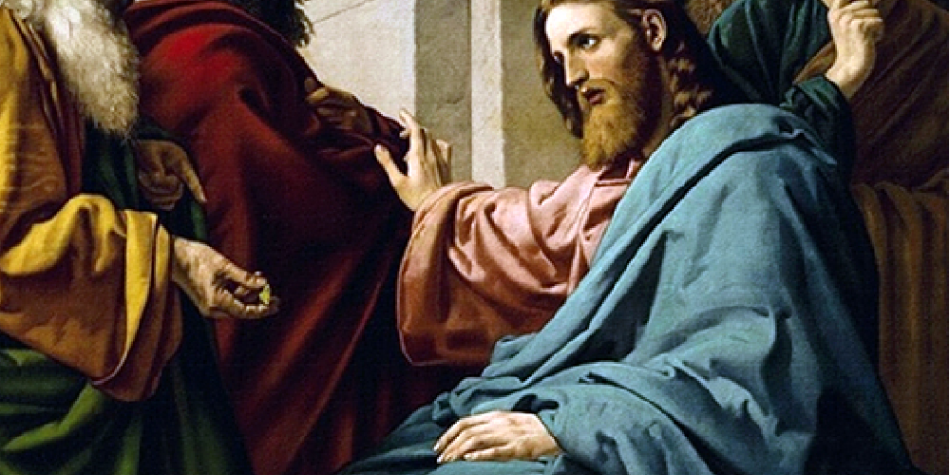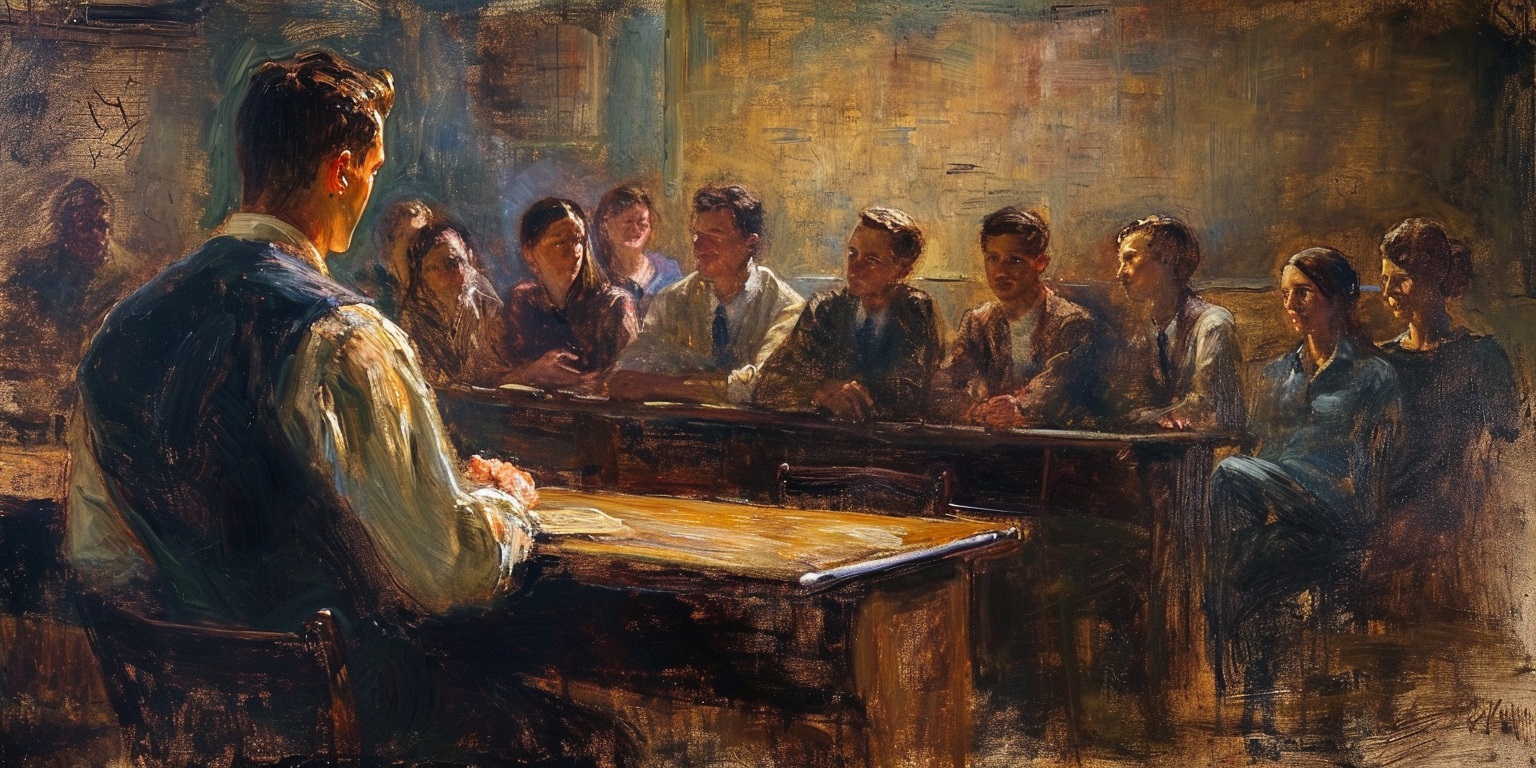Writer John Barth stated it perhaps most succinctly when he noted that “everyone is necessarily the hero of [their] own life story.” And in my experience, this idea extends to the ways in which we identify with others. For instance, the people with whom I’ve interacted are more likely to see themselves as a Luke Skywalker than they are as a Sheev Palpatine or as a Hermione Granger than as a Bellatrix Lestrange. This makes sense intuitively.
Since we are the heroes of our own stories, when we look outside of ourselves, we tend to identify with the “good guys and gals” who stand in opposition to those who seek to do wrong or who prevent others from achieving greatness. And this can be a good thing. It is important to recognize that we, each of us, are all unmeasurably valuable and special. We are all made in the “likeness” and “image” of God, and I hope that every day we each feel deep in our bones what a remarkable thing that is. As eternal beings, there are no limits to the things we can do and achieve. We are all of infinite worth. Thus, in a very, very real sense, we really are the heroes of our own stories. Our innate proclivity to identify with the hero may do us a disservice.
I think this holds true when most Christians read the New Testament, including the Gospels. In the Gospels, we have Jesus—the hero in the Gospel narrative—who challenged the status quo, pushed those around Him to improve, and made the world a better place. And on the “other side” are those people portrayed as disagreeing with Him (this group varies a little, depending on which Gospel you read, both in regard to who is in this group and what their concerns are). Throughout the Gospels’ narratives, some people align themselves with Jesus, and some people align themselves against Jesus. And I do not think it’s terribly surprising that when most Christians read the Gospels, they see themselves as on the side of Jesus; and conversely, it’s also not terribly surprising that when most Christians read the Gospels, they do not see themselves on the side of those resisting Jesus.
But in this instance, our innate proclivity to identify with the hero may do us a disservice—it may unintentionally blind us to seeing within ourselves and our institutions the things that need to change.
The New Testament—and most especially the Gospels—are unique in that we get an inside view of what is, essentially, an intradenominational struggle. Jesus, for the most part, is speaking to “His own” people. That is to say, Jesus is a Jew speaking to other Jews in a very limited geographic area. Thus, the vast majority of critiques that Jesus levies and the challenges that He issues are not directed at some unknown or clearly evil “other;” rather, they are critiques and challenges directed at those within His own faith community. Jesus doesn’t say that Romans are “serpents..[and a] generation of vipers,” He says that about those with whom He goes to church (colloquially speaking).
What is more remarkable than that, however, is that Jesus is—by and large—critiquing and challenging the most powerful, most respected, most connected, and most revered members of His community; those who constitute the religious, educational, and social elite. Jesus is generally not correcting the “nobodies” in his worship community; instead, Jesus critiques and challenges those who are considered to be the most knowledgeable of ancient scriptural texts, those who by birthright have ritual responsibilities for the whole community, those who ensure that the requirements of religious life are taught and enforced, and those who help maintain social and religious order.
It is for this reason that I think the Gospels invite Christians to see ourselves on both sides of Jesus’s ministry. Because Jesus healed and blessed those in his community, the Gospels invite us to see ourselves in those who are healed and blessed. But similarly, because Jesus critiqued and challenged his own community, we must also learn to see ourselves as among those that Jesus critiqued and challenged. In real ways, we are all the person with a withered hand that Jesus heals, but we are also the Pharisees who resist healing because it runs against our interpretation of what is and is not appropriate Sabbath behavior. We are all the person who revels in the idea that inward purity is more important than outward performances, but we are also the scribe who proscribes the way in which purity “ought to look” in others. As an outflow of His love and concern for all of us, Jesus blessed and challenged … and He did not pull any punches in either activity. And He did both of these actions within his small faith community. Thus, as difficult as it may be, the Gospels invite us to see ourselves as both those Jesus is healing and correcting.
As a case study in employing this idea, I want to show what it might look like to apply the teachings found in Matthew 23. This chapter goes on for thirty-nine unrelenting verses and contains the most sustained and scathing critique in any of the four gospels. For the purpose of this essay, I am only going to pull out the seven “woes” that Jesus pronounces (verses 13, 14, 15, 16, 23, 25, 27, 29). They are:
1. Woe unto you … for ye shut up the kingdom of heaven against men
2. Woe unto you … for ye devour widows’ houses, and for a pretense make long prayer
3. Woe unto you … for ye compass sea and land to make one proselyte, and when he is made, ye make him twofold more the child of hell than yourselves.
4. Woe unto you … which say, Whosoever shall swear by the temple, it is nothing; but whosoever shall swear by the gold of the temple, he is a debtor!
5. Woe unto you … for ye pay tithe of mint and anise and cummin and have omitted the weightier matters of the law, judgment, mercy, and faith.
6. Woe unto you … for ye make clean the outside of the cup and of the platter, but within they are full of extortion and excess.
7. Woe unto you … for ye are like unto whited sepulchers, which indeed appear beautiful outward, but are within full of dead men’s bones, and of all uncleanness.
It has been my experience—likely because of the harshness of Jesus’s language combined with our human proclivity to see ourselves on the side of the hero—that discussion about this chapter in church almost always focuses on how “they” got it wrong and “we” (because we’re on the side of Jesus) get it right. And yet, taking this approach requires that we ignore, in many respects, the immediate context and content of the message itself. So, following Nephi’s example, I want to liken the more difficult aspects of this chapter to us.
First, though Jesus is talking to “the multitude, and to His disciples,” the Pharisees and scribes are the focal point of Jesus’s condemnation. Who were they? Pharisees, as best as we can tell, were the forerunners to modern rabbis and helped interpret the Torah and explain its application in everyday life. In a largely illiterate culture, Pharisees brought God’s word directly to the people. Because this expertise required so much time and attention, they were probably regarded as an important part of, and seen as leaders in, the religious community. Scribes are a little better understood since nearly all ancient cultures had scribes. Scribes created copies of sacred texts. Like is true of the Pharisees, in a largely illiterate society, someone who could both read what was written and had re-written sacred texts numerous times would likely have been viewed as being able to speak with some authority about God’s word. So likening this group unto us, in our largely literate society with massive amounts of information at our fingertips (I already have included more than a dozen hyperlinks), everyone reading this can legitimately see ourselves as the Pharisees and scribes about whom Jesus is speaking: we all have the ability to read and understand scripture, and access to the resources that help us interpret it. In non-trivial ways, you and I are the intended audience.
I am not going to tell other individuals how they should apply these “woes” to themselves, but I can say this is how it might look for me:
- How many times have I, through my behavior, kept others from embracing the kingdom of heaven?
- Does my affluence come at the cost of those who have less than me?
- Have my public prayers, or other public remarks, ever been more about fancy language than about honest supplication, community building, and worship?
- Have my missionary efforts ever been more focused on “new members” than on ensuring continued care for those who are already part of my ward family?
- Have I ever been so concerned with “gospel minutia” that I miss larger gospel goals?
- Does my ‘exact obedience’ to rules and policies ever become a substitute for living a life of charity and kindness?
- Do I live as a Christian in public and in private?
- Do I really believe the things I say I believe, or am I just saying what others want me to say?
I find this list of questions exceptionally convicting. They are difficult questions. But I also believe that they are critically important questions if I am to continue growing my love of God and humankind. Do I really believe the things I say I believe?
- Which policies or programs inadvertently become a roadblock for honest truth seekers?
- Are we thinking of those who have the least when we choose how and when to use the funds over which we have stewardship?
- Does religious pretense ever replace Christian action?
- Have missionary efforts ever been more focused on numbers than people?
- Have church policies ever become more important than the people who are impacted by them?
- Does a focus on beliefs crowd out a focus on people?
- Do we hold ourselves as accountable as we do those we have stewardship over?
- Does keeping up appearances ever prevent honestly acknowledging and remedying missteps?
Again, these are difficult questions … but critically important questions if we as an institution are to continue to embody the love of God and humankind.
There are, of course, a variety of other ways I could apply Matthew 23 to myself and a similar variety in which it could be applied to institutions. But that is not really the main point. My larger point is that when reading the Gospels, we should be courageous enough to apply all of Jesus’s teachings to ourselves and our institutions, not just those that reinforce a view of ourselves as always being on the “right side” of an issue. Yes, Jesus brought a healing message, and He also healed actual people; He taught of blessings, and He also blessed those that needed it. So, we should rightly see ourselves being taught these messages and receiving the healing and blessing that Jesus offers. But Jesus also critiqued unhelpful traditions, and He critiqued those individuals who clung to them; He challenged erroneous religious ideas, and He challenged those individuals who enforced them. So, we should also be humble enough to listen to these critiques and challenges and honestly assess how they apply to ourselves and our institutions so that we can all do better going forward. Both parts of the Gospel message are important.
















